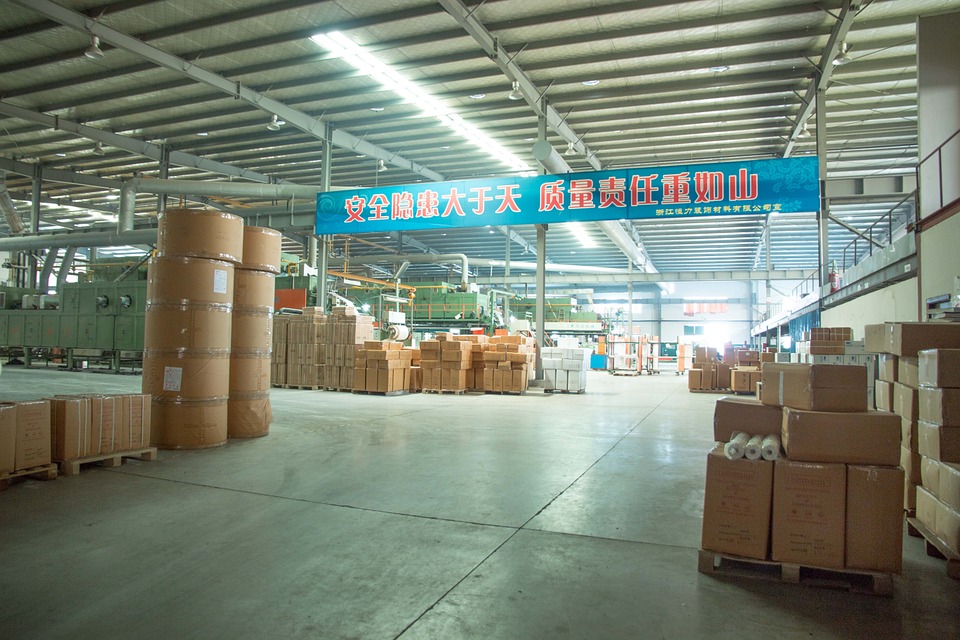Caixin Index falls - Worry for global trade
July 2, 2019 | Expert Insights

Background
Two of the world’s largest economies, US and China, are involved in the months-long trade dispute. US President Donald Trump had promised in his campaign to fix China's "long-time abuse of the broken international system and unfair practices."
In China, the Caixin Manufacturing PMI Purchasing Manager’s Index measures the performance of the manufacturing sector and is derived from a survey of 430 private industrial complexes. The basis of this index is on the following: New Orders ( 30 per cent), Output ( 25 per cent), Employment ( 20 per cent), Suppliers Delivery Time ( 15 per cent) and Stock of Items ( 10 per cent) with Delivery Times Index inverted so that it moves in the comparable direction.
At the G20 Osaka Summit in 2019, the US and China have agreed to resume trade talks, easing a long row that has contributed to a global economic slowdown.
Analysis
In China, the Caixin/Markit Manufacturing Purchasing Managers' Index (PMI) came in at 49.4, falling short of market expectations and the worst reading since January. Across Asia and Europe, factory activity shrank in June. These countries have seen reductions in exports to China, as China cuts back its components imports due to lower sales to the US. The policymakers are under pressure to deploy stronger steps to avert a global recession.
South Korean factory activity shrank at the fastest pace in four months in June as the global trade slowdown deepened, prompting companies to cut production and shed more jobs. Their exports plunged almost 14%, and PMI signalled contraction. Survey respondents noted downturns in the semiconductor and car industries.
Japan’s Tankan confidence index dropped to a three-year low. Weak demand for new cars is hitting automakers in Japan. In Singapore, the PMI dipped to 49.9 in May. Manufacturing activity also fell in Malaysia and Taiwan in a sign the US-China trade conflict's impact on the rest of Asia was broadening. Similar manufacturing reports for the US and the Euro area due are expected to show further reasons to worry about the global economy, which has suffered from the tariff uncertainty and a cyclical slowdown.
In the US, the Institute of Supply Chain Index fell to the lowest since October 2016. Switzerland saw manufacturing shrink the most in seven years, and Spain registered its worst reading since 2013. Overall, the eurozone manufacturing shrank for the fifth month, and the UK dropped to a six-year low.
At the G20 Summit in Osaka, the United States and China agreed to restart trade talks after US President Donald Trump offered concessions including no new tariffs. It is believed that truce will lead to a sustained easing of tensions while lingering uncertainty could dampen corporate spending appetite and global growth.
"It's too early to turn optimistic. The two countries just kicked the can down the road and there's no knowing what could happen next," Yoshiki Shinke, chief economist at Dai-ichi Life Research Institute in Tokyo. "Global manufacturing activity hasn't hit bottom yet. US business confidence, particularly that of manufacturers, has been weakening, and if this continues, it may hurt economies across the world."
International Monetary Fund Managing Director Christine Lagarde welcomed the resumption of trade talks between the two countries, but warned that more needed to be done to resuscitate a global economy that had already hit a "rough patch."
- Much of the global economy will be affected due to the disruption of integrated supply chains centred on China. Further, this loss will not be not fully compensated by incremental export gains by other Asian countries to the US. It is expensive and not easy for companies to reconstruct their supply chains while shutting existing ones.
- We feel that while the G20 summit is likely to boost the confidence of some companies, organic growth in the economy is not adequate, and counter-cyclical stimulus policies need to be maintained.
- We also feel that heightening worries over global growth will force some central banks, such as Australia, New Zealand and India, to cut interest rates. We believe that many G20 countries have little fiscal and monetary space to battle another recession.
India Watch
In India, where growth depends mainly on domestic demand, the manufacturing sector has expanded at its quickest pace. India is considering to offer incentives on the lines of Vietnam to attract companies moving out of China amidst its trade war with the US. Preferential tax rates and the tax holidays are some of the measures being considered to lure companies








Comments